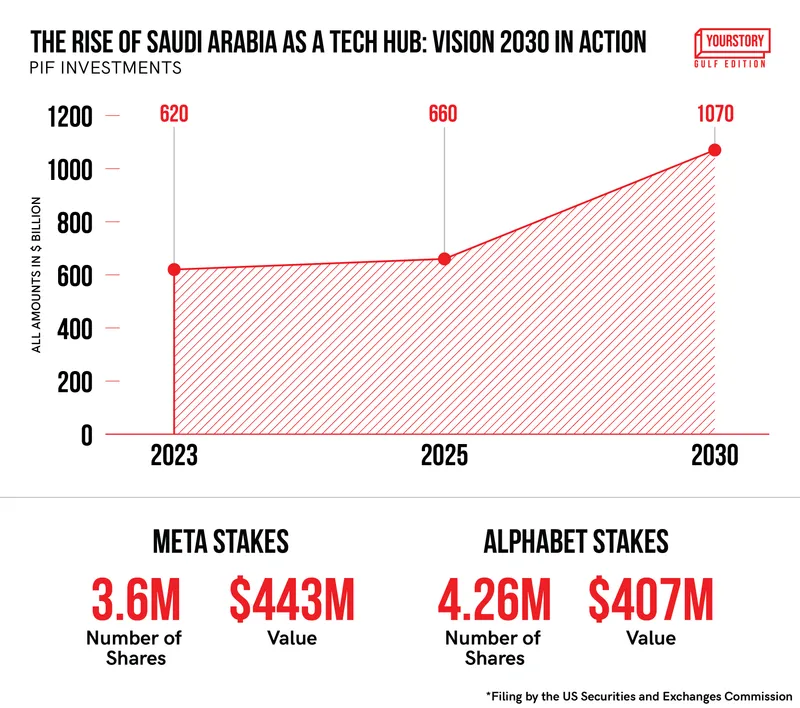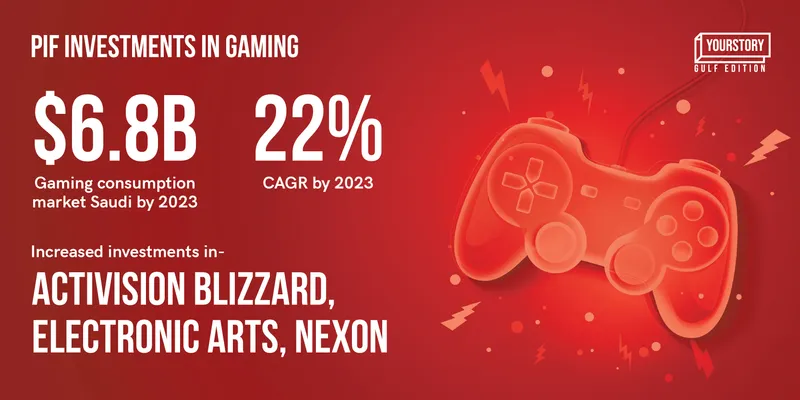The rise of Saudi Arabia as a tech hub: Vision 2030 in action
From investments to building industries from scratch, this is how Saudi Arabia is accelerating towards becoming a prominent tech player in the GCC region.
Saudi Arabia’s push to diversify its economy away from oil and become a tech hub is making the world sit up and take notice. Long associated with a strict regime that has kept women out of the workforce and discouraged foreign investment, the country has undergone a complete transformation in the last five years.
It all begins with Vision 2030—an elaborate plan to diversify Saudi Arabia’s economy by placing a focus on technology, education, infrastructure, tourism, and recreation.
The emergence of Saudi Arabia as a tech hub to rival Dubai has taken many people by surprise. For decades, Dubai has been the go-to destination in the GCC region, attracting talent, businesses, and expats from all over the world.
As a true expat city, Dubai was well placed to embrace the startup and technology trend. However, the UAE now has a serious contender in Saudi Arabia, with a population of over 35 million, one of the largest in the entire GCC.
The country is investing heavily in startups, incubators, accelerators, and funds. There’s also an emphasis on supporting women entrepreneurs, and shows that women now own 40% of small and medium-sized enterprises (SMEs) in the country. The government has also opened up the region for tourism and other business development.
Dubai’s Vision and Abu Dhabi’s wealth
The Public Investment Fund (PIF) is at the centre of the kingdom’s Vision 2030.
The fund is looking to double the value of its assets to over $1.07 trillion and commit over $40 billion to develop the region's economy until 2025, with a focus on 13 core domestic sectors. The fund has already created over 10 new sectors, created over 331,000 jobs in Saudi and has set up over 30 new companies.
According to the FDI Confidence Index, under Emerging Markets trends, Saudi Arabia, UAE, and Qatar all figure strong positions on the list, and many founders at different meetings and conferences are echoing that Riyadh is well on the path to becoming the new Dubai.
Randeep Sudan, former Practice Manager for Information and Communication Technologies at the World Bank, based in Washington DC, is among those who think that the region is moving beyond replicating best practices to adding next practices. “And all these reforms, which have been carried out, Saudi Arabia is one of the best examples of changing the interest levels in this region. And I think there's also some competition, in the sense that you find UAE, Dubai, which is also trying to move forward,” he adds.

Image credit: Nihar Apte
Data: US Securities and Exchanges Commission.
Bringing more women into the workforce
In March at the Biban Conference by MonSha’at, the SME Ministry of Saudi Arabia had 50% participation from women, a statistic that is unheard of in the country.
“In 2016, the number of women who owned SMEs was only 21%, but today, 40% of the SMEs are owned by women,” Afnan Ababtain, Director of Women Entrepreneurship Department in Monsha’at, Saudi Arabia’s Ministry of Small and Medium Enterprises, in a conversation with YourStory Gulf.
Women now account for 17.7% of all entrepreneurs in the country, as per Global Entrepreneurship Monitor.
“We have a great ecosystem today to encourage women to start their businesses or scale them. They can get any form of support across all stages—ideation, scaling, or even growth stages,” says Ababtain.
Significant investments in a diversified economy
The NEOM city and the Line are two of the interesting shifts the region has been moving towards recently. Credit rating agency Moody's rating outlook has changed from stable to positive for six of Saudi Corporates of which PIF was one.
This change in rating is in line with several of the initiatives, investments, and changes made in Saudi Arabia, particularly significant for PIF. Factors taken into account for this change in the rating include the quality of the fund's investment portfolio, and assets under management, along with the sustainable growth of the returns of the fund, sector diversification, and investments across sectors locally and internationally.
Over 10 million SAR was pumped in the total value of awards and hackathons, three million online visitors, over 1200 exhibitors, and over 24000 participants who were part of the training and consulting courses just at the Biban Conference 2023.
This followed the recently concluded LEAP conference where Saudi’s Minister of Communications and Information Technology Abdullah bin Amer Al-Swaha revealed it would make investments worth more than $9 billion to support future technologies, startups and digital entrepreneurship in the MENA region.
Others like Microsoft contributed $2.1 billion for a hyper-scale cloud in the Kingdom of Saudi Arabia (KSA), Oracle invested $1.5 billion to expand its business in Saudi Arabia by launching new cloud areas. Meanwhile, Chinese firm HUAWEI offered a $400 million investment in a cloud area and the launch of a Zoom cloud area in the region, as per Saudi Press Agency.

Unique way of building
“There is a unique Saudi way of doing things,” said Jonathan Ortmans, Founder and Chairman Global Entrepreneurship Network (GEN). “They want brands to come in and share, and work together. With Saudi Arabia working on developing technologies and building a startup ecosystem, it is bringing people who left Saudi back into the country.
“They know exactly what they are doing, and are excited and bullish to work with others,” he says.
“Many of the countries in the region, and especially Saudi Arabia, have very clear and definitive goals. What helps is when everyone —ministers, government, organisations, businesses —are all rowing towards the same goal at the same speed and pace,” explains Ortmans.
(Image credit: Nihar Apte)
For any press related queries or to share your press releases, write to us at
[email protected].
Edited by Akanksha Sarma







